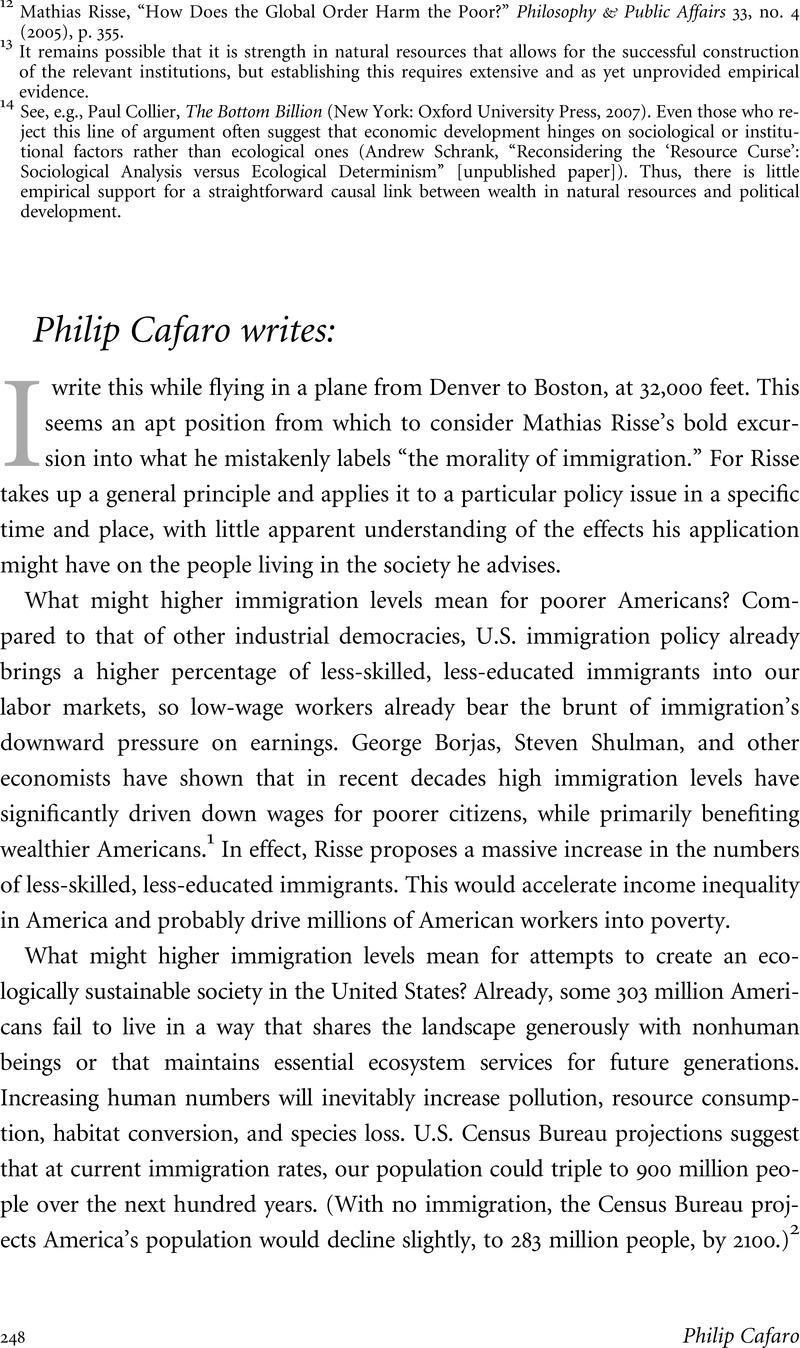
1 George Borjas, Heaven's Door: Immigration Policy and the American Economy(Princeton, N.J.: Princeton University Press, 1999); and Steven Shulman, ed., The Impact of Immigration on African Americans(New Brunswick, N.J.: Transaction Publishers, 2004).
2 U.S. Census Bureau, “Annual Projections of the Total Resident Population as of July 1: Middle, Lowest, Highest, and Zero International Migration Series, 1999 to 2100” (Washington, D.C.: U.S. Census Bureau, 2000).
3 Millennium Ecosystem Assessment, Living Beyond Our Means: Natural Assets and Human Well-Being: Statement from the Board(Washington, D.C.: World Resources Institute, 2005), p. 5.
4 For a powerful argument to this effect, see Holmes Rolston III, Environmental Ethics: Duties to and Values in the Natural World(Philadelphia: Temple University Press, 1988).